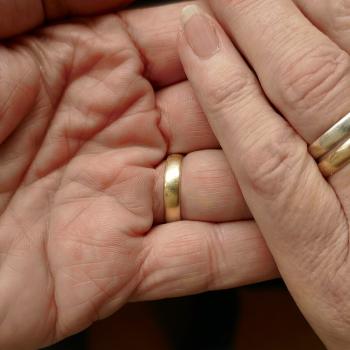Great piece this morning by Ed Yong at The Atlantic “Fatigue Can Shatter a Person” summarized here if you don’t have access to the whole thing. One of the points he makes is that “fatigue” is an all-encompassing term that covers a multitude of what are in fact very different symptom sub-types.
Your doctors need to understand how different these types of fatigue are, and as Yong points out, there is a good chance they don’t. This is exactly like other broadly-defined symptoms, such as headaches. You really, really need your doctor to be able to tell the difference between the type of headache that is due to migraine, versus sinus infection, versus brain aneurysm . . . and so forth.
In my contribution to conversation, I’m going to use myself as an example. Here are three possible differential diagnoses that various medical types asked me about over the past eight months (plus one bonus that I’ve heard in the past). They were each good questions, and together provide a nice syllabus for Fatigue 101.

Our Sample Case
This was me last fall (not the squishmallow photo above, but the description that follows): One week I was humming along enjoying a temporary miracle of normal energy levels (and openly discussing the resulting spiritual tension) and next week I was down for the count. From mid-September to mid-November I was laid out flat. I could sustain 5,000 steps a day, otherwise was on my back, sleeping 10-12 hours a day. Had to plan 48 hours in advance and megadose on caffeine in order to make it (sitting) through Sunday Mass. I developed a quirky movement disorder and it didn’t matter because I was tired enough to just drift off to sleep regardles.
Those were weird times. And then, suddenly as it arrived it was gone again, and in the space of week I could reliably hit 7500 steps a day — doesn’t sound like much but that is a 50% increase in activity level and be upright and normal all the rest of the day. No more laying around. Normal eight-hour sleeps per day.
This is a very distinctive pattern.
So let’s talk about some ways well-meaning medical people heard the word “fatigue” and grabbed for an easy diagnosis, going as far off the rails as if someone tried to treat your sinus infection with migraine meds.
Is It Depression?
When symptoms are accompanied by few or no clinical signs (things the doctor can test or measure, rather than having to rely on the patient’s say-so), doctors and nurses are trained to consider depression as a possible cause for fatigue.
It is certainly worth considering! You don’t want your depression untreated, even if you also have some other disease that needs diagnosis and treatment as well. Depression is often a relapsing and remitting disorder, so it did need to be ruled out.
However, one of the distinctive characteristics of depression is being depressed.
What if:
- Your spirits are buoyant?
- You work hard to plan and prepare in order to accomplish priority goals?
- You are able to think strategically and creatively, and to persevere in the face of obstacles?
- You enjoy time spent with family and friends, and look for ways to make that happen even when it’s difficult?
- You relish the little pleasures in life?
- You would say overall that despite the unavoidable difficulties, your life is good and your are grateful for your many blessings?
- You do not feel depressed.
- You do not feel angry.
- In fact you feel quite happy, even though you are dealing with difficult circumstances.
Chances are if this is how you are thinking and feeling, you aren’t depressed. Many, many, many illnesses — I would hazard most illnesses — cause fatigue. If your mood is happy and upbeat, you probably have one of those other things instead.
Lesson: Ask yourself whether the fatigue is accompanied by any other symptoms of the suspected illness.
Is It a Sleep Disorder?
Hypersomnia (which I had during those two months) is often caused by sleep disorders. Your doctor should be on the alert for an undiagnosed sleep disorder, because they are common, they are pernicious, and they can lead to serious — even fatal — complications. If you happen to have a family history of, say, sleep apnea, your doctor should be double-aware.
However. Your insurance company would not be wrong to deny coverage of an in-lab sleep study if your suspected sleep disorder spontaneously disappeared after its two-month run on prime time, and for the past six months you have had no hypersomnia.
Obstructive sleep apnea doesn’t just magically cure itself with no intervention and no change; central sleep apnea could be part of a relapsing and remitting brain disease, but in that case you aren’t going to catch it in a sleep study during remission.
Lesson: The pattern of onset and remission is very important to diagnosis.
Is it Deconditioning?
I don’t think anyone said this out loud to me this round, but I will slip it in there because other patients have gotten this one at inappropriate times, and I’ve gotten it in the past. Deconditioning will reduce your energy levels overall. It doesn’t cause hypersomnia, certainly doesn’t cause movement disorders (even weird ones), but the linchpin of our differential diagnosis: It doesn’t just magically go away.
It doesn’t come on suddenly — you don’t wake up one morning radically less fit than you were the day before — and it doesn’t vanish suddenly either. If you are out of shape, you aren’t going to magically “get better” one day and be able to increase your sustained daily activity level by over 50% just ’cause.
Deconditioning is a long slow decline due to inactivity, and requires a slow, steady increase in activity level to see eventual recovery. It is not a quickly relapsing-and-remitting disorder.
Lesson: The pattern of onset and remission is very important to diagnosis. Oh, did I say that twice? Interesting.
Is it Chronic Fatigue Syndrome?
There’s been a lot of research into what was once a very poorly-understood entity labled “chronic fatigue syndrome.” Unfortunately, there is very little continuing education bringing medical professionals up to date on the latest in that field.
The hallmark characteristic of CFS/ME is a form of exercise intolerance in which the body’s ability to recover from exercise is impaired.
Whereas most diseases involve fatigue and require some level of pacing, CFS/ME (and related disorders such as some forms of Post-Covid Syndrome) have an extremely different character. With “normal” chronic diseases, if you over-exert yourself, you will need recovery time and then you will be back to baseline.
Your body may need a little more recovery time than other people, but it will still follow a normal recovery curve. If you have a progressively deteriorating illness, of course you are going to see a decline in your fitness over time. If you have a stable illness, you will be able to maintain or even increase your fitness level over time (even though your progress will probably be slower than it would be without the disease). What distinguishes CFS/ME is that the challenge of physical exertion actually makes things worse because it is the body’s ability to respond to that challenge that is central to the disease.
This is not something that was well understood in the past. However, I promise you, people with CFS/ME do not suddenly get better overnight and then go on to have no difficulty ramping up to very intense exercise in short order.
Lesson: Ask yourself whether the type of fatigue and pattern of fatigue is characteristic of the illness.
Where Does This Leave Tired People?
The reality is that differential diagnosis is a tough game. If you don’t present with the classic symptoms of an easily-detected disease, it can be very difficult to uncover what’s actually going on.
Fatigue is the most-disabling, most-obvious, and often the earliest-presenting symptom of an overwhelming number of illnesses of many different kinds.
So. I don’t have a ton of good news, other than to say: Don’t give up on yourself.
If You Keep Having Problems, Keep Looking for Answers
I want to conclude with a final observation: You can have more than one disease.
Let’s say you are depressed, out-of-shape, and suffering from a sleep disorder. That’s a pretty common combination! Once you begin to treat these three, you should feel better. If you are still fighting debilitating fatigue despite your sleep apnea being under control, your mood having improved, and your exercise program coming along bit by bit . . . there is probably a fourth disease.
If the standard treatments for these three aren’t working at all to improve your fatigue? You almost certainly have a fourth disease.
It could be anything. Don’t ignore it. Find a doctor who will take your symptoms seriously and keep looking for answers.


















